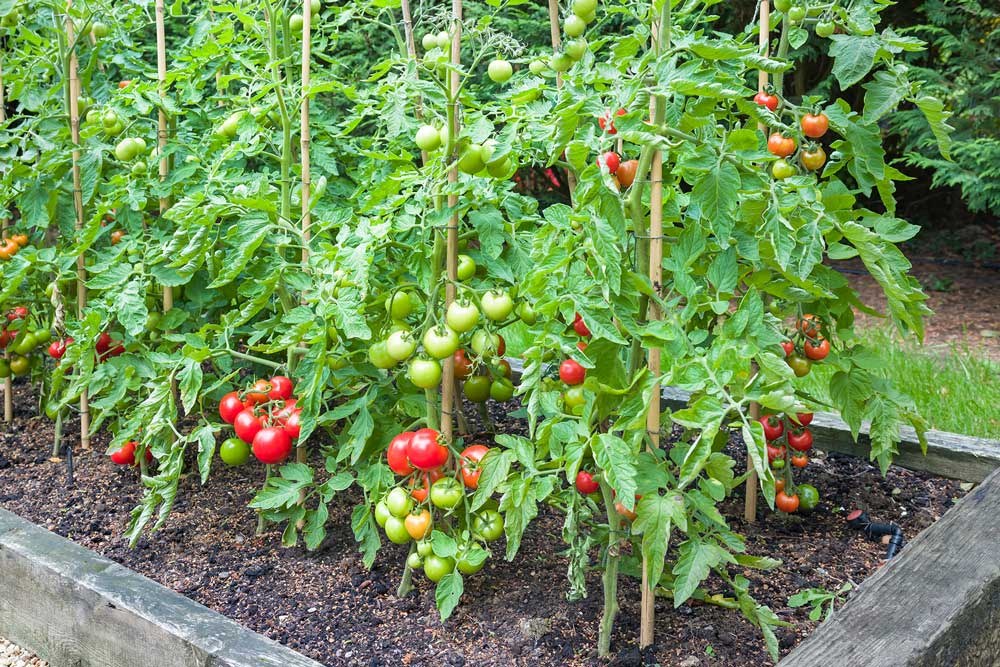This is the fourteenth short news article written by students, during the professional development class of Spring 2024, about each other's research.

Jared Griffin is working on chemical differences in different types of tomatoes.
Photo Credit: Paul Maguire/Adobe Stock, All Rights Reserved
Student Spotlight: Jared Griffin
By David Chen
Tomatoes are vital ingredients to many of our most beloved foods: pasta sauce, salads, chili, and many other dishes. Humans have produced many varieties of tomatoes through artificial selection to obtain other desirable traits such as different colors or greater sweetness. Just as humans like them, herbivores such as earworms also see tomato plants as a good choice of food.
The tomatoes possess physical and chemical defenses to fight against the herbivores. Research has been conducted to study and compare the defense capabilities between wild and cultivated tomatoes, but the results vary across studies. Some researchers have found that, unlike their wild relatives from in South America, the cultivated tomatoes have less defenses. However, other researchers reported that cultivated tomatoes mount a strong defense than wild tomatoes. So, the question remains: are domesticated or wild tomatoes better able to defend themselves against caterpillars?
Jared Griffin, an enthusiastic and passionate graduate student conducting a research rotation in Dr. Gary Felton’s group in the Department of Entomology at Penn State, is interested in examining the chemical defenses in three different types of tomatoes. Jared is studying how feeding by the Helicoverpa zea, corn earworm, induces a chemical defense response in these tomatoes, and if these tomatoes differ in their level of responses.
The three different species of tomato plants will be subjected to three treatments: no attack from caterpillar, attack from wild-type caterpillar, and attack from mutant caterpillars that lack glucose oxidase (GOX). GOX is a compound that caterpillars produce in their saliva, which can either activate or suppress plant defenses. After being subjected to different treatments, the leaves of tomato plants will be processed and analyzed for the level of different chemical defense compounds such as polyphenol oxidase (PPO), peroxidase (POX), and trypsin inhibitors (TI), which are antinutritive compounds that make it harder for the caterpillar to gain weight, making the plants less desirable for the caterpillars
With the new findings in his research, Jared is hoping to provide more information on how wild tomatoes differ from cultivated tomatoes in their chemical defense. His findings will fill in the missing pieces in the puzzle of the defense mechanisms of tomato plants against herbivores and will further contribute to pest control to protect our beloved tomatoes.
Jared is a PhD student in Professor Gary Felton’s research group in the Department of Entomology at Penn State and his research is funded by the Department of Entomology.

